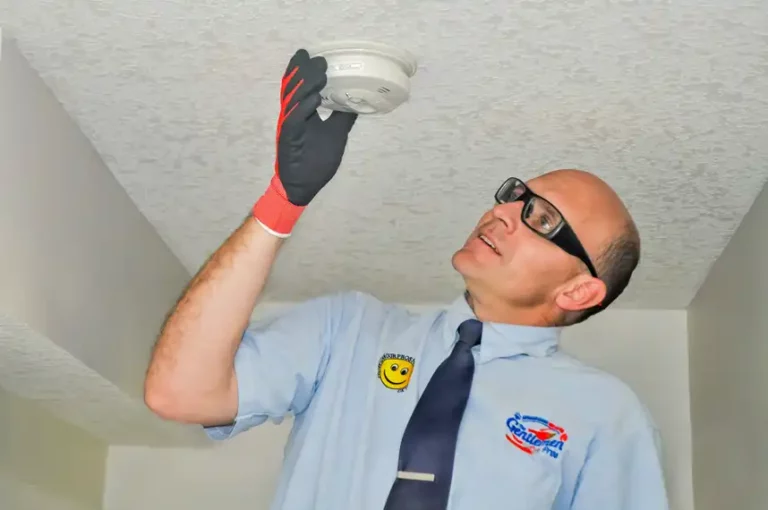We're In Your Neighborhood!

Same Day Service
Since 1992
Call The Gentleman Pros Now!
(403) 755-4914
We're In Your Neighborhood!


Same Day Service
Since 1992
Call The Gentleman Pros Now!
(403) 755-4914

We provide quality residential electrical services in Red Deer.
Is your home plagued with weird electrical happenings? You know when lights flicker, your circuit breakers are constantly tripping, or an outlet will occasionally give you a spark or two in greeting? You’d swear your house is haunted, but you don’t believe in ghosts.
Reach out to us and let our licensed, insured, and bonded electricians handle your electrical issues for you. Our knowledgeable electricians are trained to handle any electrical issue your home has.
And don’t worry if you’re not sure exactly what the issue is. We will figure that out and then walk you through what needs to be done and give you a price upfront.
Let’s have a chat about your electrical problems. Give us a call at (587) 797-2685 or book an electrician visit online. From big to small, we handle it all!

Amperage (measured in amperes or amps) and voltage are both measures of the electrical current but they measure different things.
Amperage measures the volume of the electrons in the current. It is similar to the flow rate in measuring water.
Voltage measures the pressure that allows the electrons to flow. To continue with the water analogy, voltage is similar to water pressure.
Both are important measurements in your home’s electrical system.
An electrical surge is an unexpected spike in voltage. The spike in voltage can range from a few hundred to a few thousand volts and is quick, only lasting microseconds. They happen frequently and are unavoidable. Thankfully, you won’t even notice the vast majority of them.
There are several causes and occasionally, one will inflict damage on your appliances and devices and shut down your power.
You can protect your home, appliances, and devices with either an outlet surge protector or a whole-house surge protector. However, even the best surge protector isn’t strong enough to protect your electronics from a lightning strike. To protect them during a thunderstorm, we recommend you unplug them.
Electrical surges are also called power surges, voltage surges, and transient voltages.
In Alberta, you are paying for three things:
The delivery costs can be broken down into transmission and distribution costs. Together they are the total costs of delivering the electricity from the generating facility to your home.
These costs can also include the balancing pool rider, local access fees, and other rate riders. Rate riders are temporary credits or charges on your bill due to differences between projected and actual operational costs.
Pretty self-explanatory — it’s the actual cost of the electricity your household used during a set time period.
It is determined by multiplying the number of kilowatt hours (kWh) used by the price of electricity per kWh.
These other costs will be determined by your provider. What they are called will vary from provider to provider usually because they categories the costs differently.
The other costs usually include administrative fees and taxes.
If you have questions about your electricity bill, please contact your provider directly.
The quick answer is yes but it really depends. Clear as mud, right? The concern with aluminum wiring isn’t the wiring. It is how the wires are connected. You must use connectors rated for aluminum wiring. These connectors are usually marked with CU-AL.
Aluminum wire was used in Canada between the mid-1960s and mid-1970s, but copper wiring is the standard now. And that means the most common connectors on the market are designed for use with copper wiring and they cannot be used with aluminum wiring. For example, standard outlet terminals are made of brass and are not compliant with aluminum wiring
If your house has aluminum wiring, you or your electrician will have to make sure all the components used in your electrical system are rated for aluminum.
If components not rated for use with aluminum wiring are used, the connections can come loose. Loose connections are a significant safety issue because they can cause arcing, oxidization, sparking, and heat buildup, all issues that can lead to a fire.
These two terms are often used interchangeably but technically they are not the same thing, even though they perform similar functions.
Both fuses and circuit breakers protect your home from current overloads (excessive amperage) and electrical shorts in the electrical circuit.
Fuses and fuse boxes are older technology. In the mid-1960s, they were replaced by circuit breakers and breaker boxes.
Both fuses and circuit breakers are overcurrent protection devices. When the electrical amperage flowing through them exceeds the amount of amperage they are designed for they break the circuit which shuts off the power protecting you and your home. A fuse and a circuit breaker accomplish this in different ways.
Fuses have a fusible section — a piece of metal that can melt. The electrical current enters the fuse from the house, runs through a metal strip, and exits the fuse back into the house.
When the electricity amperage running through the strip is too high, it melts the metal strip causing it to break. This opens the circuit creating a gap and the electricity stops flowing. This is a “blown fuse”. Once a fuse has been blown, you can’t reuse it, you must replace it.
Circuit breakers protect from the same things but they have a few benefits over fuses. The benefits include responding faster to problems in the circuit, they are more sensitive and reliable, and you can reset them instead of replacing them like you have to do with fuses.
They have an internal switch that flips or “trips” when the current amperage is at a dangerous level. When the breaker trips it breaks the circuit and stops the flow of electricity to the areas of your home on that circuit.
To reset the circuit breaker and restore power all you need to do is flip the switch in the electrical panel.
If your house still uses fuses and has a fuse box, you might want to consider upgrading to a circuit breaker electrical panel. The electrical panel is also called the breaker panel, main breaker box, fuse box, distribution panel, and load centre.
Contact us today to learn more about Red Deer Residential Electrical Services.



